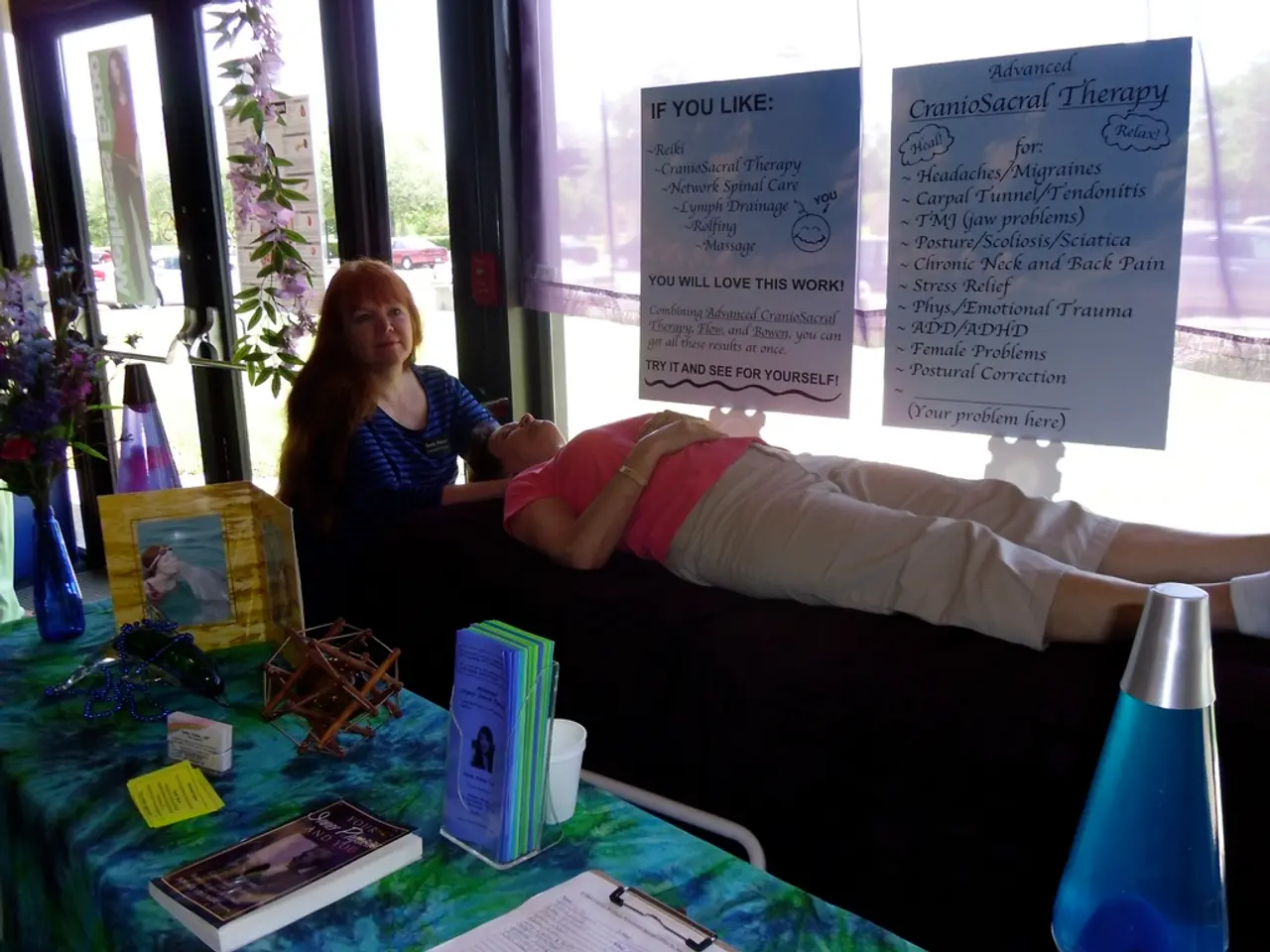Impact Revealed: The Role PTSD Plays in Shaping Interpersonal Ties
Post-Traumatic Stress Disorder (PTSD) can significantly impact relationships, causing challenges in trust, communication, and intimacy. However, with the right strategies and support, it is possible to build strong and fulfilling partnerships.
PTSD often leads to emotional dysregulation, feelings of shame or worthlessness, and difficulty feeling safe or vulnerable around others. This can manifest as emotional distancing, hypervigilance, avoidance of intimacy, and challenges in setting healthy boundaries. Such trauma responses may cause individuals to accept unhealthy or loveless relationships due to low self-esteem and a belief they do not deserve better.
Specifically, PTSD can lead to difficulty expressing emotions and engaging in intimacy, reducing relationship satisfaction. Problems with trust and fear of abandonment may result in pushing partners away or avoiding close relationships. Emotional outbursts or detachment, including depression, anger, or feeling "numb," can further strain relationships. Negative self-view and feelings of helplessness or guilt can impact the ability to maintain healthy connections.
To improve relationships, individuals with PTSD can employ various strategies. Firstly, seeking trauma-informed therapy, such as Eye Movement Desensitization and Reprocessing (EMDR) and Cognitive Behavioral Therapy (CBT), can help process trauma memories and reframe unhelpful thoughts about relationships and self-worth, empowering healthier interactions.
Secondly, developing emotional regulation skills through therapies like CBT can provide practical tools to manage intense emotions, communicate needs effectively, and challenge distorted beliefs. Building trust gradually, recognising trauma responses, and working with supportive partners or therapists to create emotional safety can reduce hypervigilance and fear.
Thirdly, setting and maintaining healthy boundaries is crucial. Learning to assert oneself respectfully helps prevent tolerating harmful behaviours or staying stuck in unhealthy dynamics. Support from loved ones, including nonjudgmental listening, patience, and help in accessing trauma-informed support, can reinforce healing and improve relational dynamics.
In addition, it is essential to be patient and understanding as fundamental elements of a successful relationship. Consistent routines contribute to a sense of security in a home environment, while learning your partner's triggers can support them in healthy ways and minimise their exposure to potential stressors.
Expressing vulnerabilities fosters trust and understanding, while encouraging the adoption of healthy coping strategies, such as mindfulness, regular exercise, and creative outlets, can help manage PTSD symptoms. It is equally important to be receptive to your partner's experiences, creating a safe space for mutual sharing.
Intimacy can be affected by PTSD, resulting in a diminished interest in enjoyable activities, a negative self-image, and difficulties in establishing emotional connections. Creating a safe home environment that exudes predictability and lacks potential threats or chaos can help address these issues.
In conclusion, healing PTSD's impact on relationships requires time, self-compassion, and often professional guidance to rebuild emotional connection, trust, and self-esteem for more fulfilling partnerships. Tips for individuals with PTSD to improve their relationships include seeking professional help, educating themselves and their partners, practicing self-care, and cultivating open communication.
- The emotional challenges of PTSD, such as feelings of shame or worthlessness, can manifest as emotional distancing, difficulty expressing emotions, and avoidance of intimacy in relationships.
- A lack of emotional well-being and trust in relationships, often due to PTSD, might lead individuals to accept relationships that are unhealthy or devoid of love, as they believe they do not deserve better.
- To build strong and fulfilling partnerships despite PTSD, strategies like trauma-informed therapy, emotional regulation skills development, and healthy boundary-setting can be beneficial.
- Cultivating open communication, understanding, and patience in relationships, combined with learning about healthy coping strategies like mindfulness and regular exercise, can help manage PTSD symptoms and improve relational dynamics.
- In the process of healing the impact of PTSD on relationships, it's essential to create a safe home environment that promotes predictability and reduces potential threats or chaos, which can help address issues related to intimacy and emotional connections.




